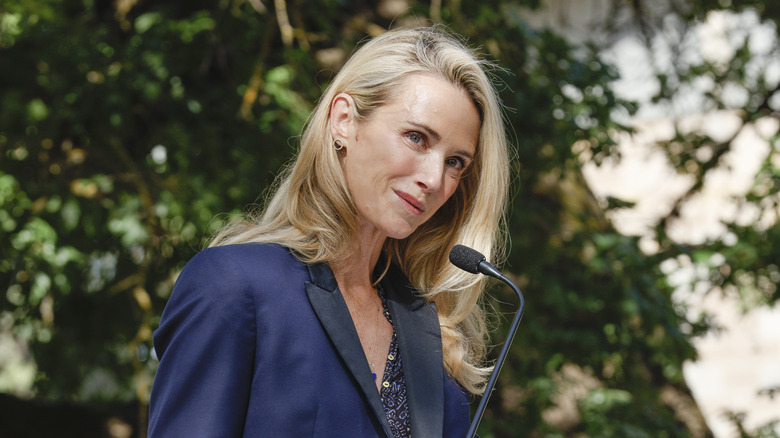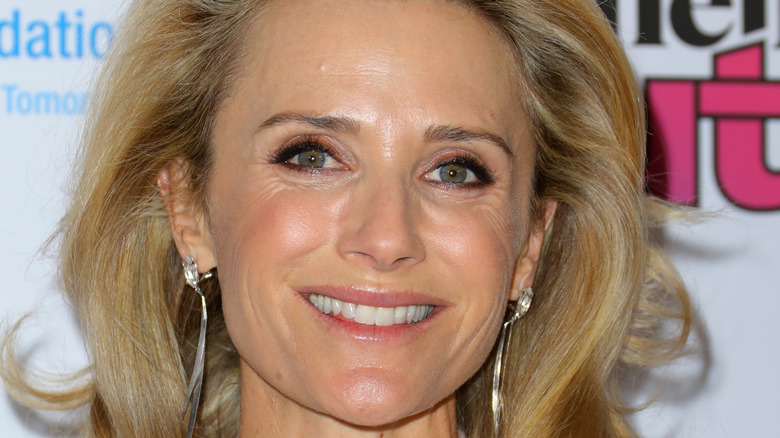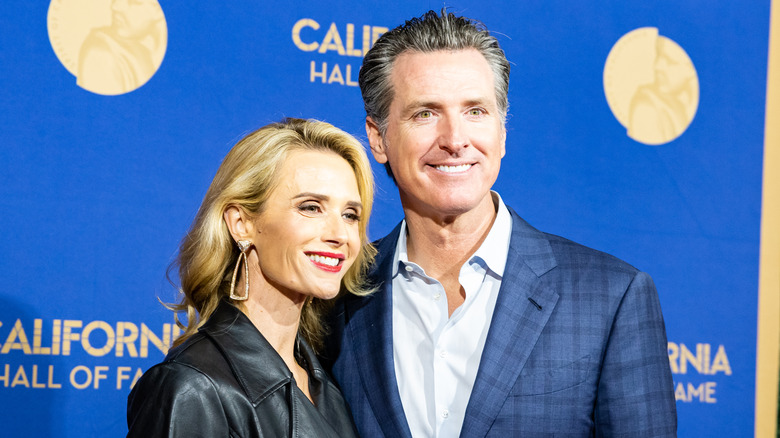Jennifer Siebel Newsom's Traumatic History With Harvey Weinstein, Explained
We may receive a commission on purchases made from links.
Before 2017, much of the world knew Harvey Weinstein as a Hollywood producer who helped make movies like "Pulp Fiction," "Shakespeare in Love," and "Silver Linings Playbook." For those in show business, rumors circulated about his inappropriate behavior. In October 2017, articles were published by The New York Times and The New Yorker that outlined years of sexual harassment after a number of women came forward to publicly tell their stories about Weinstein's assaults, confirming rumors.
After mounting evidence, Weinstein faced multiple charges of sexual assault. He went to trial first in New York in 2020, and in 2022, he went on trial in Los Angeles — Weinstein has since filed to appeal. It was at the trial in Los Angeles that Jennifer Siebel Newsom, wife of California governor Gavin Newsom and documentary filmmaker, came forward and testified against Weinstein as one of his victims. Newsom was known as Jane Doe #4 during the trials but publicly confirmed her identity before she appeared in court. On the stand, Newsom explained that she thought Weinstein brought her to his L.A. hotel room in the mid-2000s to talk about her career, but instead, he sexually assaulted her. She talked through everything that happened, from how she and Weinstein met to what he did to her and what she did afterward.
If you or anyone you know has been a victim of sexual assault, help is available. Visit the Rape, Abuse & Incest National Network website or contact RAINN's National Helpline at 1-800-656-HOPE (4673).
Jennifer Siebel Newsom thought Harvey Weinstein wanted to talk about her career
When Jennifer Siebel Newsom told her story on the stand, it was the first time that She had publicly spoken about what producer Harvey Weinstein had done to her. Understandably, at times during her testimony, she broke down in tears. Newsom explained that Weinstein came up to her to talk during the Toronto Film Festival in 2005, and he got back in touch with her in Los Angeles ostensibly to talk about her film career. She met him in his suite at the Beverly Hills Peninsula Hotel, and that's where things took a terrifying turn. Newsom described how she felt when Weinstein came out in a bathrobe and started touching her inappropriately: "Horror! Horror! I'm trembling. I'm like a rock, I'm frigid. This is my worst nightmare. I'm just this blow-up doll!" (via NPR).
Newsom talked about how she didn't know how to get out of the situation, how ashamed she felt afterward, and that she didn't tell the police that Weinstein raped her. As a coping mechanism, Newsom tried to ignore what he'd done to her, but it clearly left a mark. "He ruined my life," Newsom said during cross-examination. "I put it in a box and I was not going to not pursue my entertainment career because of what happened," per Times of San Diego.
Jennifer Siebel Newsom is an advocate for gender equity and women's rights
Harvey Weinstein's defense attorney Mark Werksman referred to Jennifer Siebel Newsom as someone who'd willingly had sex with Weinstein as a way to advance her career. Werksman also asked Newsom about the fact that she'd asked Weinstein to donate money to her husband's political campaign. The assault happened before Jennifer and Gavin Newsom met, and she didn't tell her husband about it when Weinstein donated money. The governor returned Weinstein's donation in 2017 during the #MeToo movement.
After the trial, Newsom acknowledged that it had been distressing to relive the rape and hear how the defense team characterized her. But she hasn't let what Weinstein did to her hold her back. Newsom's directorial debut was the documentary "Miss Representation" in 2011, which is about how women are often poorly and stereotypically portrayed in the media and how that can negatively impact women's ability to obtain positions of leadership and power. Her 2022 documentary "Fair Play" examines issues of gender inequity, particularly in the home and with childcare. As the First Partner of California, she has worked to get more women into leadership roles across the state and to promote the physical, mental, emotional, and economic health of children and families.


